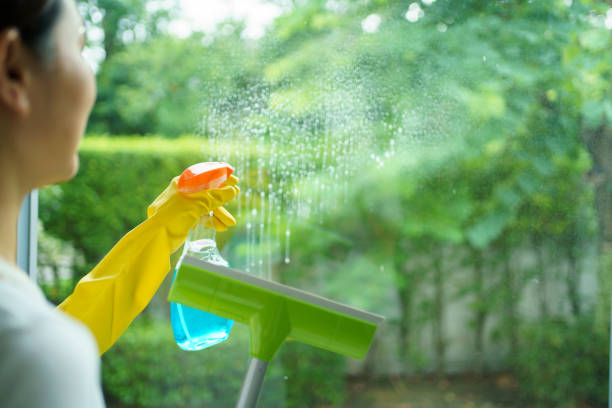
Clean windows are vital for maintaining the aesthetics and functionality of any space. They can transform your home or office, making them light, bright and good for the soul. Achieving that perfect, streak-free shine can be challenging for many. But don’t worry—we’ve got you covered in this user-friendly guide. Whether you’re a homeowner, business owner, or DIY enthusiast, this article will provide expert tips and techniques on cleaning window glass effectively and keeping it sparkling every time. Let’s dive in!
How to Clean Windows Properly: Gathering Supplies Before You Begin
For proper window cleaning, you must gather the cleaning material first—it is a crucial step in achieving the best possible results. This preparation streamlines the window cleaning process and ensures you avoid the hassle of missing items. With everything at hand, you can focus solely on the task, making it more efficient and effective. Moreover, using the right cleaning tools and products optimises your efforts to get a professional finish more easily, saving you time and effort in the long run.
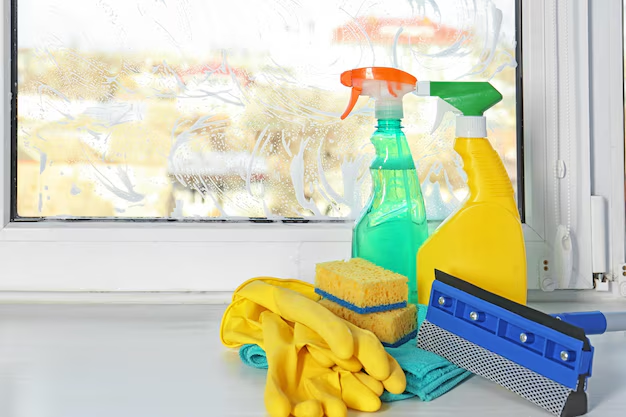
Windows can be cleaned with the following supplies:
- Large dry brush or broom handle: Useful for removing cobwebs and dust from window frames and sills before cleaning.
- Bucket: Convenient for mixing and holding cleaning solutions if you’re not using a spray.
- Sponge: Ideal for applying the cleaning agent evenly across the window surface.
- Squeegee: A good quality or professional squeegee will give the best cleaning result for streak-free wiping.
- Lambswool: Effective for washing windows, especially those with heavy grime.
- Purpose-made solutions or vinegar: A natural cleaning solution that is effective for tackling grime and dirt because of the high level of acidity.
- Chemical mixture: Specifically formulated mixtures designed for optimal window cleanliness.
At Total Cleanz, we only use eco-friendly cleaning solutions that are safe for everyone and leave windows sparkling clean without harmful residues.
- Microfibre cloth: Lint-free and excellent for buffing and drying windows without leaving residue.
- Dry lint-free cloth or drying pad: Essential for the final polish, leaving the windows sparkling clean.
Don’t forget the gloves! Aside from the materials mentioned above, gloves are necessary for your protection. Gloves shield your hands from potentially harsh or irritating cleaning solutions, preventing skin dryness and allergies. They also provide a better grip on tools and ensure your hands remain clean throughout the process. A good pair of gloves can make the task safer and more comfortable.
Choosing the Right Cleaning Solution
When selecting the right cleaning solution, there are two primary options to consider: natural solutions and commercial cleaners.
For a budget-friendly and eco-friendly option, consider the homemade cleaning solution. This is a simple yet effective way to clean surfaces without harming the environment or breaking the bank. The cleaning agents involved in this solution are:
Vinegar (or white vinegar): A natural acid that helps break down dirt and grime.
Water: The base that dilutes the vinegar and helps to rinse away dirt and residue.
This solution is particularly useful for general cleaning tasks, such as cleaning windows, wiping surfaces, and removing minor stains. It is also a good option for those who avoid harsh chemicals.
For those seeking convenience or needing to tackle tougher grime and stains, store-bought cleaning products are a viable option. These products are specially formulated to handle more stubborn dirt, delivering impressive results with minimal effort. Among the popular commercial options available is Total Cleanz Commercial Cleaners, designed for heavy-duty cleaning. They are available in various formulations to suit different surfaces and cleaning needs.
When choosing commercial cleaners, it is essential to consider the type of surface being treated, the level of grime, and any specific cleaning needs. Additionally, ensure the product is safe and follows proper safety precautions to avoid potential risks.
Guides on How to Clean Windows and Make Your Glass Streak-Free
To make this chore more effective, consider these tips and techniques.
Given that all cleaning supplies are ready, here’s a step-by-step guide to help you.
1. Remove Curtains and Blinds
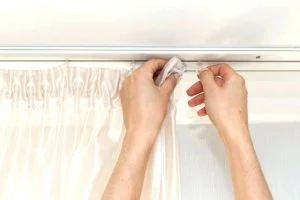
Start by removing curtains and blinds (or if you’re using window screens); this will give you full access to the windows. If you can, take the opportunity to give your drapes a thorough wash or spritz with a fabric freshener like Febreze.
2. Assess the Window Condition
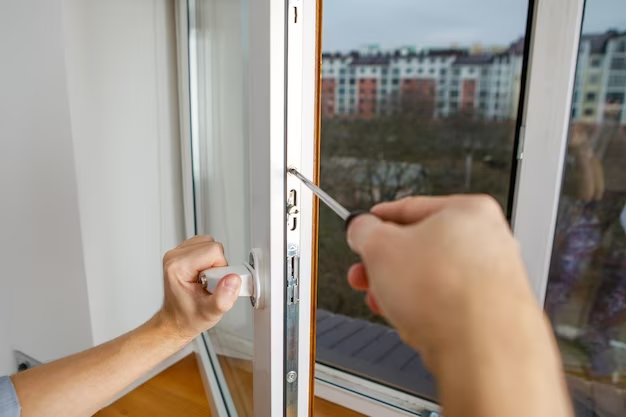
Take a moment to assess the condition of your windows. Check the window frames, hinges, handles, and other components to ensure they function well. If you notice loose or damaged parts, repairing or replacing them may be a good idea to avoid any complications during the cleaning process.
3. Remove Contaminants
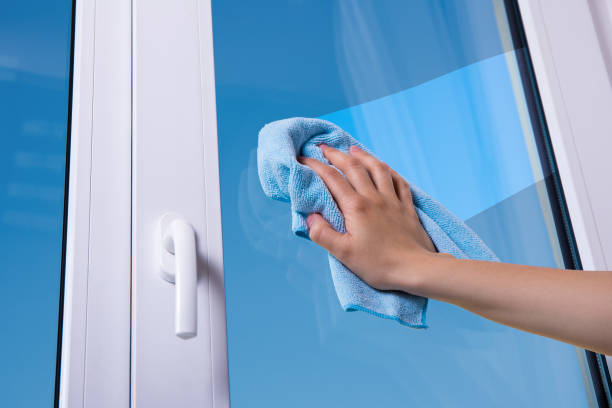
Use a dry cloth/brush or dusting attachment on your vacuum to sweep away any cobwebs or dust from around the corners of the windows and the window sills.
4. Prepare Your Cleaning Solution
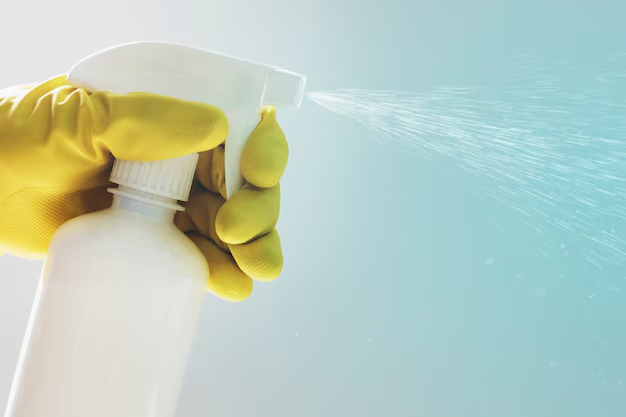
Wear rubber gloves before mixing your chosen cleaning solution. Do note that the ratio of chemicals, whether using a natural or commercial cleaner, plays a crucial role in achieving effective results. Ensuring the correct proportions will optimise cleaning efficiency and prevent damage to the glass surfaces.
What is the best thing to clean windows with? We recommend washing your windows with soap and water. Fill a bucket or any container with a simple solution of washing-up liquid (also known as dish soap or dishwashing liquid) and warm water, but avoid creating too many soapsuds, as these will leave further marks after drying. Start washing windows with a non-abrasive sponge. Alternatively, try a specific window cleaning fluid, but be careful that strong formulas won’t damage the surrounding paintwork.
Try traditional methods. If you prefer to make your own homemade cleaning solution, combine 2 tablespoons of vinegar with warm water in a small bucket. This mixture won’t eliminate bacteria, but it’s a gentle and effective way to clean windows. If your windows need a strong formulation, add 2 tablespoons of household ammonia. After cleaning, use crumpled newspaper to buff the glass to give windows a sparkling finish.
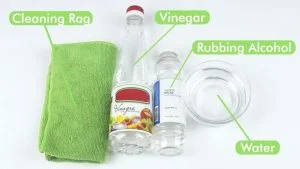
5. Apply the Cleaning Solution
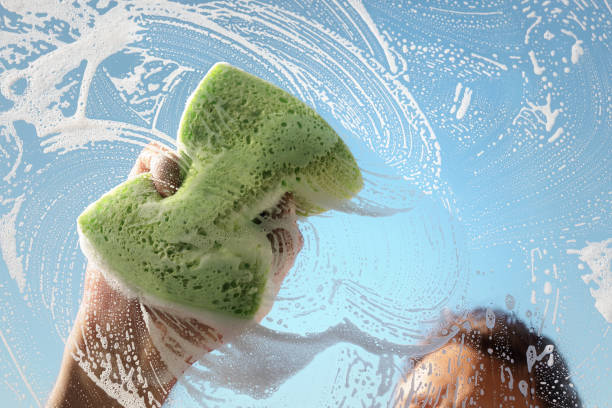
Apply your mixture to the panels (interior and exterior windows) using a non-abrasive sponge or lambswool, and ensure even coverage. This helps to break down stains, dirt and grime.
6. Use a Squeegee
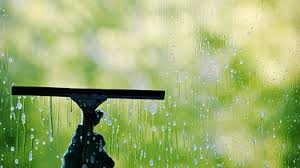
To remove soapy water from the glass, use a clean, good-quality squeegee that works from top to bottom in a reverse S-stroke pattern (this technique helps to prevent streaks). Periodically wipe the rubber blade with a clean rag to avoid smearing dirt around. You may repeat the process as needed.
For cleaning outside windows or high upper-floor panes, it’s worth investing in a tool with a U-shaped window cleaning pole to avoid reaching out of top-floor windows.
7. Wipe off Any Excess Cleaner
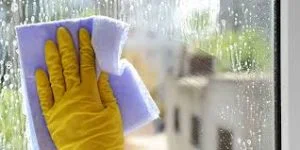
Remove excess water with a damp microfibre cloth and dry the window sill. Avoid cloths or paper towels that might leave lint on the glass.
8. Final Polish
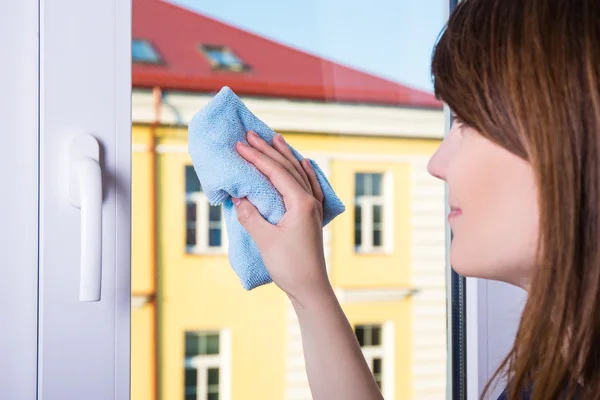
Use a clean, dry microfibre cloth to buff the window dry and remove any remaining streaks. Work in small sections to ensure a polished-looking surface—for a streak-free shine!
Invite the brightness back into your space with sparkling clean windows. Find out more about our window cleaning service and packages. Reach out to Total Cleanz Singapore today!What Are the Common Window Cleaning Issues?
Despite your best efforts, sometimes cleaning windows doesn’t always go as smoothly as planned. From stubborn stains to hard-to-reach areas, various challenges can arise during the workflow. Understanding some of the most common cleaning issues will help you tailor methods and solutions for more effective and efficient results.
One of the most common challenges in cleaning windows is dealing with stubborn stains. These can come from various sources, from bird droppings to environmental pollutants. To address this issue, a small amount of rubbing alcohol or a commercial cleaner can be highly effective. Apply the cleaning solution to a damp corner of your microfibre cloth and gently rub the stained area. This method ensures the tough grime is effectively removed without damaging the glass.
Another common problem that beginners might encounter is cleaning high windows safely. Stretching or using unstable ladders can be hazardous. Instead, using extension poles or long-handled tools like water-fed poles with cleaning attachments is a safer alternative. These tools allow you to reach high, inaccessible windows without climbing.
At Total Cleanz, our team ensure that any tools or equipment used at heights meet safety standards and are used according to guidelines to prevent accidents. We acquire essential Work at Height certificate for any job of 2m and above.
Window tracks and window frames are often neglected components that can accumulate dirt and grime over time. Cleaning these areas may seem daunting, but it is essential for overall window maintenance, so they should receive the right care. To scrub these areas, use a damp cloth or a hand brush (such as a soft-bristle brush or toothbrush) dipped in your chosen cleaning solution to remove dust and dirt; ensure they are thoroughly dried using a dry cloth. This approach ensures that the tracks and frames are as clean as the window panes, providing a more comprehensive clean. Additionally, using Total Cleanz products guarantees that you are using eco-friendly and effective solutions throughout your window frame and track maintenance.
When Is the Right Timing to Clean Windows?
Get the timing right! While you might think you need a bright, hot day to see the most streaks and grime accumulated on your windows, when you clean glass in the sunshine, you create more streaks— the opposite of your desired end result. What’s going on is this: If you apply the cleaning solution to a glass surface that feels warm when you touch it, particularly those hot window panes, it will cause the liquid to evaporate or dry too quickly, and that will leave streaks and smears behind.
The ideal time to wash dirty windows is on a cool, overcast day when the sun is not shining directly on the glass. This will allow the cleaning solution to stay wet longer, giving you ample time to wipe it off and achieve that perfect shine. Additionally, avoid cleaning your windows on windy days, as the wind can kick up dust and debris, which could settle on your freshly cleaned windows.
How Often Should I Clean My Windows?
Regular cleaning and general maintenance are key to keeping your windows in peak condition and extending their lifespan. A good rule of thumb is to clean windows at least twice a year, but the frequency at which you need to clean your windows varies based on several factors, including environmental and climate conditions, location, type of property, and usage.
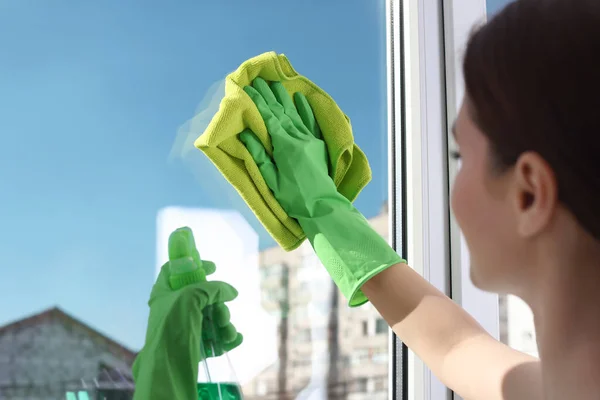
Generally, at least every six months, a thorough cleaning is recommended for residential windows. This helps remove accumulated dust, dirt, and grime, ensuring your windows remain clear and spotless. However, you may need to clean your windows more frequently if you live in an area with high pollution or dust levels, such as near a construction site. The buildup of minute particles and debris can cause your windows to appear dirty much quicker. Additionally, windows exposed to acidic rain or industrial pollutants may require more regular cleaning to prevent damage.
More frequent cleaning may be necessary for commercial properties like retail spaces, offices, hotels, and restaurants, where having a clean and professional appearance is crucial. Monthly cleanings can help maintain a pristine image of your business and make a positive impression on clients and visitors.
Other things to consider are health and weather conditions. If anyone in your home suffers from allergies, cleaning your windows at least once a month can help reduce allergens. Clean windows can contribute to a healthier living environment by reducing allergy triggers. Windows must be cleaned more often in areas with frequent inclement weather, like heavy rain or high winds. Rain spots and residue from wind-blown debris can make windows dirty, requiring more frequent maintenance to keep them clear.
What Are Common Window Cleaning Myths?
At Total Cleanz, we are busting five common myths surrounding window cleaning to help you see through these fallacies clearly:
Newspaper is the best material for cleaning windows: Although some still swear by it, the newspaper can leave ink stains. We recommend microfibre or squeegees for a flawless finish – a streak-free shine without any mess.
Rain cleans my windows: This myth assumes that rain can effectively clean windows without any human intervention. While it can help to remove some dirt and debris from windows, it will not leave them sparkling clean. Rainwater can mix with dirt and grime on the windows, creating streaks and spots.
Any cleaning solution works: Using the wrong solution can lead to streaks and unsatisfactory results. Opt for professional or specialised cleaning solutions or effective natural solutions like a mix of vinegar and water. Vinegar and water solution is a powerful and eco-friendly window cleaner for everyday cleaning.
Window cleaning should be done in fall and spring only: A common belief is that cleaning windows should be limited to the spring and fall seasons. While these periods are ideal due to mild weather conditions, it’s important to note that professional services can be done all year round. This flexibility ensures that windows can be maintained pristinely irrespective of the season. Depending on the window needs, some may require cleaning twice a year, once per month, quarterly, or more frequently.
Professional window cleaning is too expensive: This myth implies that professional cleaning is too costly and not worth the investment. The truth is window cleaning is a cost-effective way to maintain the value of your home or office. Professional window cleaners offer specialised equipment, expertise, and guarantees, making them a viable option for those who want high-quality window cleaning services.
By addressing these myths, we ensure your cleaning efforts are effective and efficient, leaving your glass windows spotless and clear!
Can I Store My Leftover Cleaning Solution?
Yes, commercial and DIY cleaning solutions can be stored for future use. Here are some of our guidelines to ensure the solution remains effective and safe:
Clearly label the container or bottle with the contents and the date it was prepared to avoid confusion.
Ensure they are kept in a sealed container and stored in a clean, cool, dry space away from direct sunlight, heat and water sources.
Ensure the chemical container is clean and free from contaminants before storing the solution.
Regularly check the solution for any spoilage or degradation, as all cleaning chemicals have a shelf life.
The most important things are to store the products safely, follow any manufacturer’s instructions, and use up the leftover solutions before they expire or lose their effectiveness.
Conclusion
Mastering the right way to clean a window is essential for maintaining its beauty and functional value. A clean window reflects your image and the effort you put into maintaining your home or office environment. So, grab your supplies, follow the guide, and enjoy the pristine clarity that sparkling clean windows bring to your space. Ready to take the next step? Contact the Total Cleanz team today to help you achieve the best in window cleaning.





